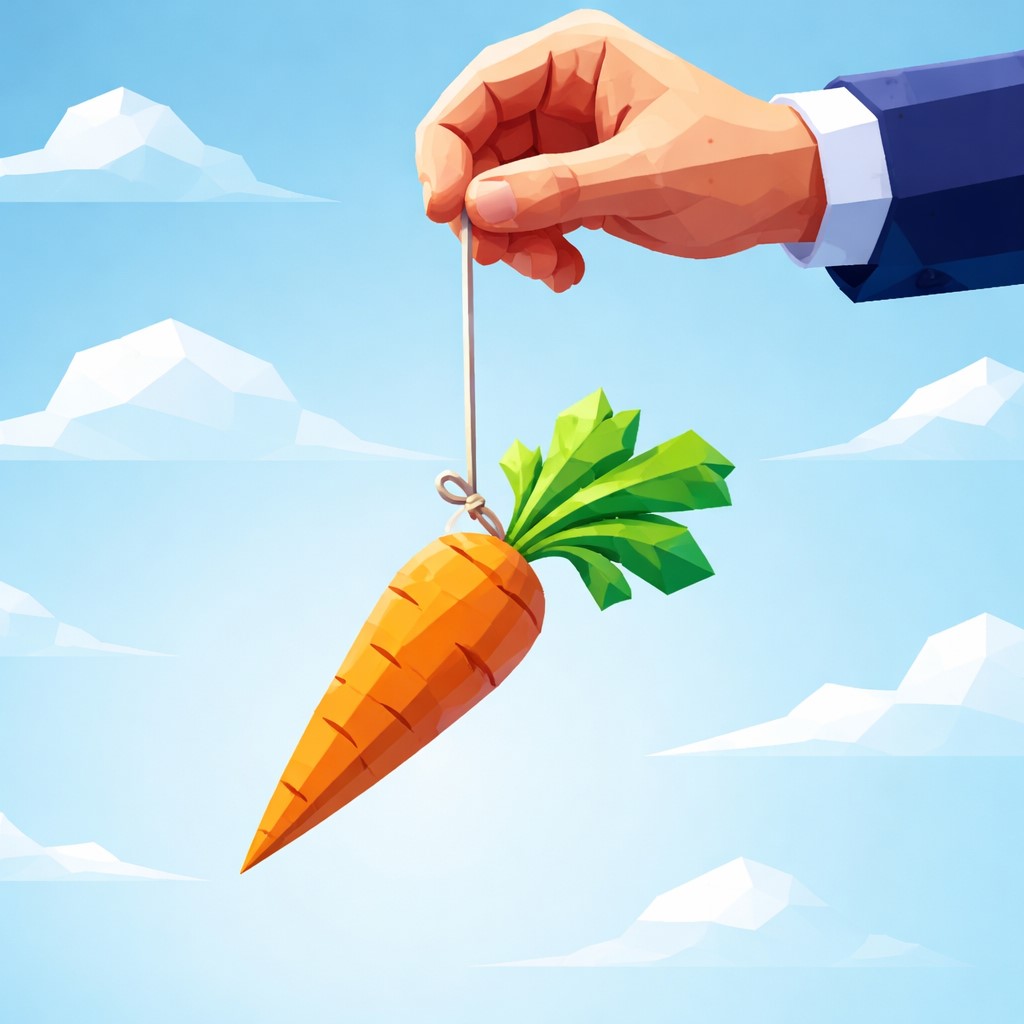Media crisis on the stairs
Artificial intelligence can undermine the media business model.

Ki-generated illustration from Sora
Main moments
It's only been two years since I wrote about “The media crisis that never came”. Now the crisis can become real. Even though Norwegian newspapers are purely economical succeed best in the world, artificial intelligence lies like a bomb under the current business model.
The model has for over 200 years been to serve both advertisers and readers. After the internet weakened the paper newspaper and technology giants gained dominance of the digital ad market, the 70 per cent of Norwegian newspapers' advertising revenue. The solution was to bet heavily on digital subscriptions. Now about 70 percent of revenue comes from users and 30 percent from advertisers.
At the same time comes almost half of the total turnover from the paper product, and the paper layer falls by around 10 per cent every year. Major changes in the distribution network could cause paper sales to collapse before readers are ready for it. New revenue streams are being established through podcasts and video, but the market is dominated by platform companies such as Spotify, Apple and Youtube.
With the weakening of paper as a format and ads as a product, it is mainly the digital subscription revenues that should fund the journalism.
It is precisely these revenues that KI threatens. Thus, a real media crisis could be on the steps.
Personal news
I have a long time had a hope of that Norwegians should seek out editor-controlled media as a filter against Ki-generated content. Editor-led media dampens for Disinformation and Election Influence, two problems that KI reinforces.
At the same time, language models such as ChatGPT are becoming increasingly popular as links between us and information. Figures from autumn 2024 show that 8 out of 10 Norwegian students use KI services in their study work. Such chatbots can easy to instruct to provide an update on the news picture, tailored to the individual's interests.
There is little hope that such a news service will increase traffic to the media. In four months at the start of the year there was a doubling in the number of referrals from ChatGPT to 250 news websites. In April, ChatGPT generated 244 million visits.
But the numbers only apply to those who actually clicked on links. If the summary in ChatGPT becomes good enough, many readers stop there.
And precisely then the willingness to pay weakens: why pay for one newspaper when a personal KI assistant can summarize several?
The Assistant Who Steals
A natural objection is that most Norwegian newspapers' content is behind paywalls. At the same time, it is well known that editor-controlled media content — probably in violation of copyright — being used to train KI models. New regulation doesn't seem to remedy this.
Fresh Surveys show that language models can replicate content behind paywalls, even if they are instructed not to.
One explanation is that media outlets undermine each other's paywalls by making quote cases. A KI service can easily start from VG's “open” case about DNS's “closed” disclosure.
Hopefully many of us will still want to pay for newspapers, but more can be found a free and personal KI assistant attractive.
Is “search” dead?
A related challenge is Google's AI Overviews, which allows you to get a Ki-generated summary at the top of the results list when you google.
A study from the United Kingdom shows that up to 50 percent of Google traffic to news websites disappears when such a summary comes first. The British media has Submitted a complaint to the competition authorities, but it is far from certain that it will change Google's practices.
One possible salvation for Norwegian newspapers is that Norwegians have the world's strongest direct relationship for editor-controlled media. That means the main “road” to digital news goes via the website, apps and newsletters.
However, this may change. For young people, social media the main news source. And for the fifth year in a row it is Fewer Norwegians who read online newspapers -- down 12 percentage points from 2020.
If KI services become a more important route to news and thus weaken the subscription economy, the future of journalism looks bleak.
New tools
The KI companies rely on journalism for their news summaries to work. The experience with Facebook admittedly shows that tech giants can choose to downprioritise news, but in theory there is scope to develop funding models.
One possibility is partnership. Schibsted entered this year a collaboration with OpenAI that ensured increased visibility of the Schibsted papers in ChatGPT as well as a Unknown Millionsum. Journalists are paid NOK 6000 a year as compensation for the use of intellectual property. However, this is petty cash if the business model falls.
Another solution is to establish common standards for compensation, whereby newspapers get paid every time a KI service draws on their content. Scheme may resemble Spotify model and shows how small the payments will be in practice. In a small language market like Norway, micropayment will never compensate for the demise of subscription revenue.
A third possibility is that technology companies, with its huge profits, helping to fund the editorial staff. For example, they could have been required to pay a certain sum to nation-states, which then distributed the funds through a press support scheme. In the Nordic countries, such a model could theoretically be possible if the industry stood together, but globally it is far more demanding. The media systems and press support schemes are too disparate, and that makes the solution both politically vulnerable and unrealistic.
A fourth solution is for Norwegian media collectively blocking access to ChatGPT and similar services. NRK has already done this, but the blockade is full of holes. Personalized KI Summaries will improve unless stricter regulation comes into place.
A fifth option is to significantly increase media subsidies to ensure a diversity of real competitors to it local mastodonten NRK. It's unrealistic until the crisis is a fact.
And the media crisis could come quickly: The combination of paper collapse and KI as a news portal is an existential threat to editor-controlled newspapers.
It is urgent to find solutions.
More from Langsikt

Data discovery — a tax incentive for sharing data
Norway can't speed up KI without better data, and no one has incentives to make data shareable. That's why we need a tax incentive for data quality and sharing.

AI risk is many things — that's why we need multiple conversations at the same time
KI risk is not one thing. When we mix together concrete, political and long-term dangers, debate and policy become demanding.

A golden year for AI
2026 will be a golden moment for artificial intelligence. We should enjoy it while it lasts.

What will happen to the jobs?
Framework for understanding KI's effect on the economy.